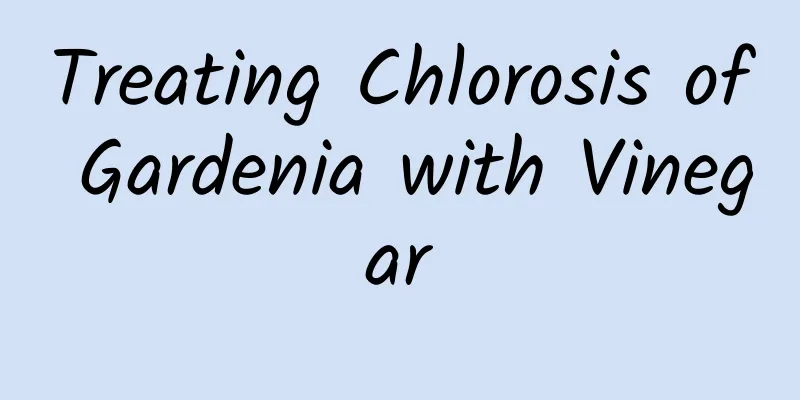Itchy, itchy, itchy! Is this the wound "talking"? ? ?

|
Review expert: Peng Guoqiu, deputy chief physician of the Fourth Medical Center of the General Hospital of the Chinese People's Liberation Army In this passionate and energetic summer, the world's attention is focused on Paris, France, the host city of the 2024 Olympic Games. After a century of reincarnation, Paris once again welcomes this sports event, showing the indomitable spirit of mankind in pursuit of excellence. However, in the fierce Olympic arena, even the world's top athletes may face the risk of injury. In addition to common sports injuries, accidental trauma can also be a challenge for athletes. Similarly, in our daily lives, injuries during sports are difficult to avoid completely. When the wound begins to heal, the indescribable itching sensation is something that almost everyone has experienced. So, why does the wound itch when it heals? How can we relieve the itching? Why does a wound itch when it heals? In daily life, we often hear such sayings: "Itching of wounds means that they are healing." This saying is actually scientifically based. Human skin is composed of epidermis and dermis. The innermost layer of the epidermis is the germinal layer, where cells have the ability to divide and proliferate. The dermis is rich in blood vessels and nerve endings, and the itch receptors are distributed on these nerve endings. Image source: Qianku.com For superficial wounds, since only the germinal layer is involved, nerve endings are usually not touched, so we do not feel itching. Image source: Qianku.com However, when the wound is deeper and reaches the dermis, new tissue, called granulation tissue, is formed during the healing process. New cells, blood vessels, and nerves grow in these new tissues, and this rapid growth process can easily irritate the nerves. Normally, nerves grow slowly, and new nerve endings are particularly sensitive. Therefore, when the nerves are close to full recovery, that is, when the wound is about to heal, we feel itchy. Once the wound is completely healed, the sensitivity of the new nerves decreases, and the itching disappears. With serious injuries, people may still feel itchy even after the wound has healed. This is because the recovery process for serious wounds can take weeks or even years . Even after the surface wound has healed, repair work continues in the underlying layers of the skin, causing a persistent itchy sensation. In addition, the mast cells in the skin contain a large amount of histamine , a chemical signaling molecule that also acts as a neurotransmitter and is involved in multiple physiological functions of the body. When the skin is damaged, mast cells release histamine, which stimulates the nerves and causes itching . Therefore, the itching during the wound healing process is actually a normal response of our body's recovery mechanism. two How to relieve itching Healing wounds are very sensitive. If you scratch the wound too much, it may cause infection and affect wound healing . However, if the itching of the wound is unbearable, we can take other measures to relieve the itching of the wound. 01Keep the skin around the wound moist Keep the skin around the wound moisturized to prevent it from drying out. When the skin is dry, it may tighten and pull on the wound, and this pulling can irritate the nerves and cause itching. 02Cold the wound Applying cold compresses can help reduce inflammation in the wound, soothing the skin cells. Cold compresses can also help reduce itching by paralyzing bacteria that may be causing the infection and reducing the nerve response to these foreign particles. 03Wash with warm water and soap Warm water not only inhibits bacterial activity, but also reduces irritation to the skin. During the washing process, be gentle to the skin and avoid scratching hard to avoid damaging the new tissue. In addition, make sure to thoroughly rinse off the soap residue to prevent any possible irritation. 04 Wear breathable and loose clothes Such clothing can reduce friction on the wound area and avoid irritation. At the same time, good breathability helps prevent excessive sweating, thereby reducing itching caused by sweat irritating the wound. Keeping the area around the wound comfortable and dry will help faster recovery. 05Use anti-itch cream If the itching persists and becomes unmanageable, an anti-itch cream can be used. |
>>: China's "amazing" diving pool! How did Quan Hongchan make the water splash disappear?
Recommend
Say goodbye to injections! Is oral semaglutide better?
Recently, semaglutide, known as the "magic d...
The efficacy and function of rock tendon vegetable
In daily life, people are not only very familiar ...
Dataotuan: China's group buying market data in January 2012
Dataotuan is a domestic group buying aggregation ...
How big are the health risks of using plastic bottles?
Many elders have this habit: no matter whether it...
Should you keep your electric water heater on all the time? Or should you only turn it on when you need it? Read on to find out →
Should you keep your electric water heater on all...
The efficacy and function of chicken brain
Friends who don’t know chicken brain will not und...
When skiing, why is there snow only on the ski slopes and the mountains are bare?
Have you skied this winter? In the past two years...
Marine Life Illustrations | We also have real "mermaid" fish
(Source: Zhejiang Ocean University)...
Unique in China! Swallowtail butterfly that looks like a "big-eyed alien" when young, first appeared in Jiangxi!
In the colorful world of butterflies, there is a ...
Econsultancy: 9 tips for creating shopping site filtering options
Only a small percentage of users come to e-commer...
The efficacy, effects and contraindications of talc
Feldspar is a natural mineral and also a Chinese ...
How to tame a giant pterosaur that is bigger than the US F-16 Fighting Falcon?
Pterosaurs are probably the closest to dragons (d...
What is flowing out of this tree? Can it also generate electricity for new energy vehicles?
In the 1970s, people discovered a magical tree on...
The health benefits of Pueraria lobata and Zexie decoction
In our lives, many people use traditional Chinese...
Snakes also like to take hot spring baths
In ancient times, the Qinghai-Tibet Plateau was a...









